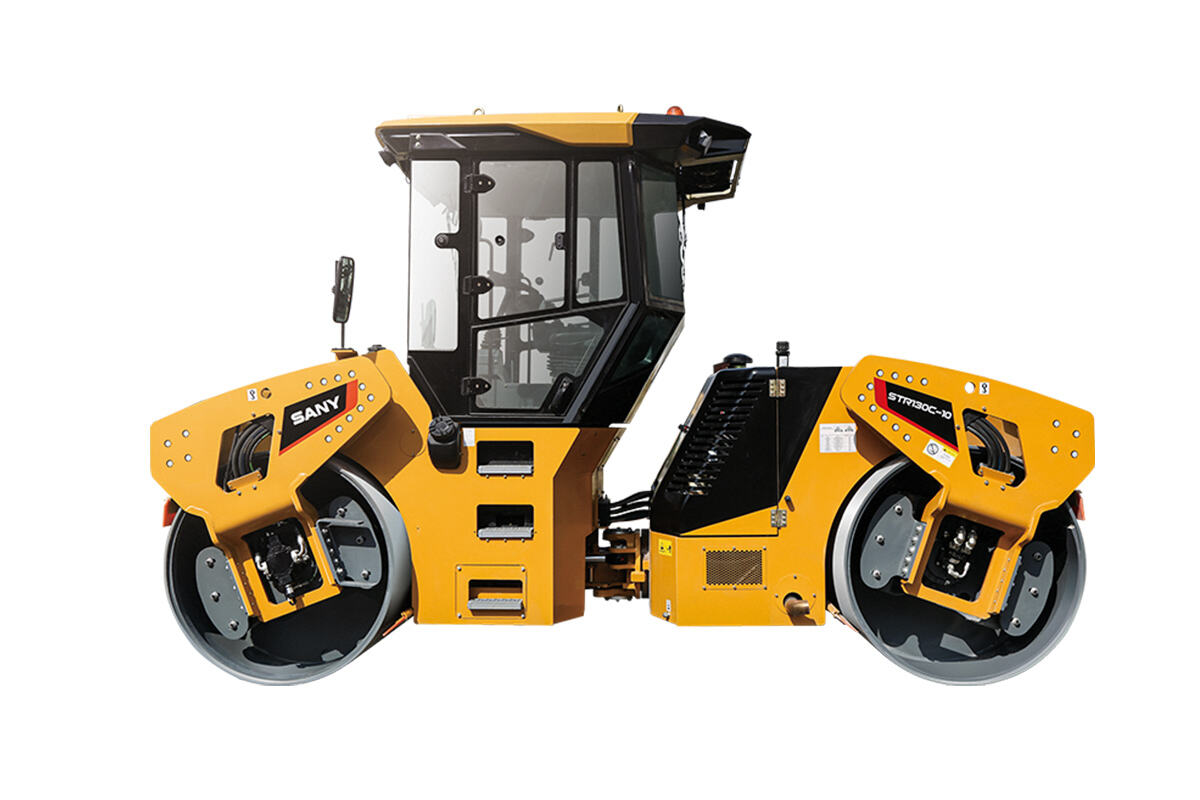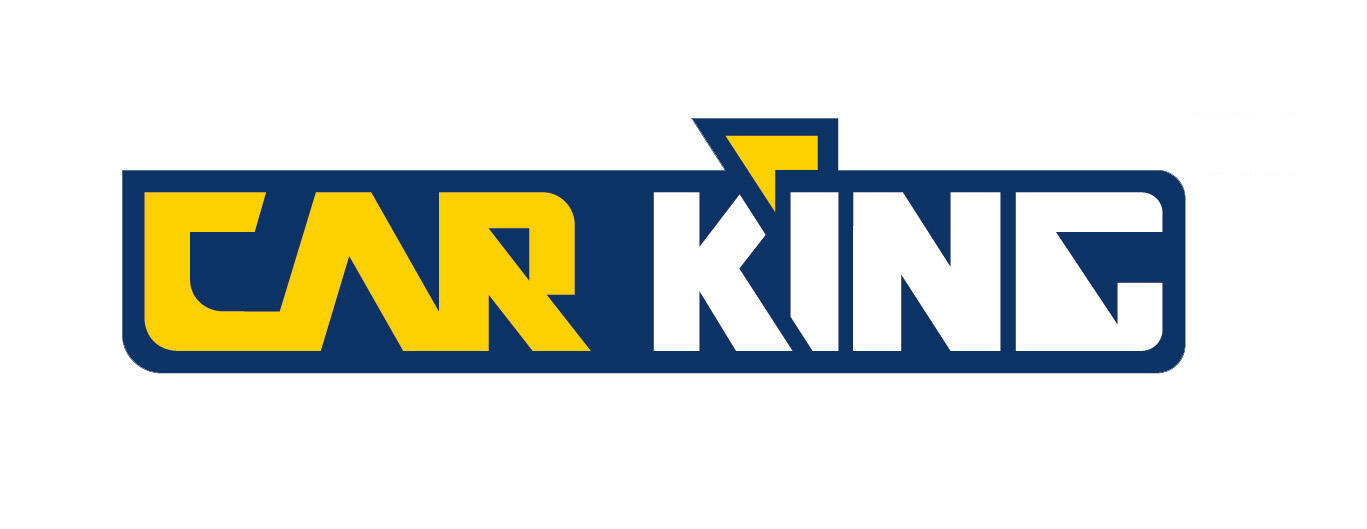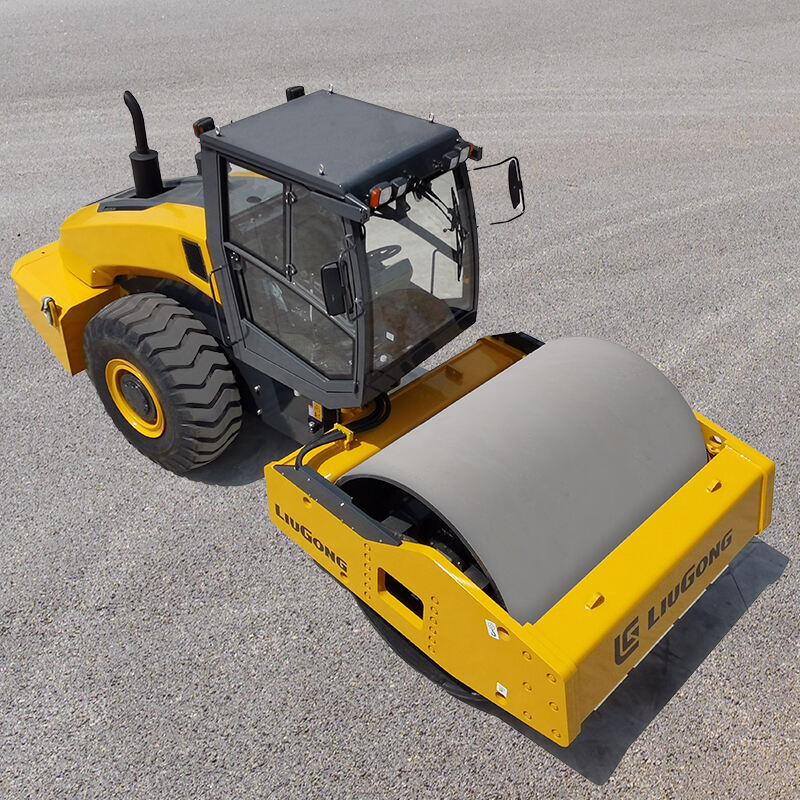Transforming Modern Construction Through Advanced Compaction Equipment
The construction industry continues to evolve with innovative technologies and equipment that enhance project efficiency and quality. Among these essential machines, road rollers stand at the forefront of achieving superior compaction results in paving projects. These powerful machines have revolutionized the way we approach road construction, offering unparalleled benefits that extend far beyond basic surface compression.
Modern road rollers combine precision engineering with robust performance capabilities, enabling construction teams to deliver exceptional results while maintaining strict quality standards. As infrastructure development accelerates globally, the significance of these machines in creating durable, smooth, and long-lasting pavements cannot be overstated.
Core Advantages of Road Roller Implementation
Enhanced Surface Uniformity and Density
Road rollers excel at creating uniform surfaces through consistent compaction pressure. The equipment's weight distribution and rolling patterns ensure even compression across the entire paving area, eliminating weak spots and potential failure points. This uniformity is crucial for extending pavement life and reducing maintenance requirements.
The systematic application of pressure by road rollers achieves optimal material density, which is essential for preventing future settlement issues. When properly utilized, these machines can achieve compaction rates of up to 98%, significantly higher than alternative methods.
Time and Cost Efficiency
Incorporating road rollers into paving projects dramatically reduces completion times compared to traditional methods. The machines' ability to cover large areas quickly while maintaining high-quality standards translates to significant labor cost savings and faster project delivery.
Modern road rollers feature advanced speed control systems that allow operators to maintain consistent rolling patterns, optimizing the compaction process while minimizing the number of passes required. This efficiency not only saves time but also reduces fuel consumption and equipment wear.

Technical Capabilities and Performance Features
Versatile Compaction Methods
Today's road rollers offer multiple compaction techniques, including static weight, vibration, and oscillation. This versatility allows contractors to select the most appropriate method for specific material types and project requirements. Static rolling works well for finish passes, while vibratory systems excel at deep layer compaction.
Advanced road rollers can adjust their compaction force and frequency settings, enabling precise control over the densification process. This adaptability ensures optimal results across various materials, from asphalt to granular base layers.
Intelligent Compaction Technology
Modern road rollers increasingly incorporate intelligent compaction systems that provide real-time feedback on material density and temperature. These technologies help operators maintain consistent quality while preventing over-compaction or insufficient compression.
GPS mapping and documentation capabilities allow project managers to track progress and verify compliance with specifications. This data-driven approach improves quality control and provides valuable documentation for project stakeholders.
Environmental and Safety Considerations
Reduced Environmental Impact
The efficient operation of road rollers contributes to reduced environmental impact through lower fuel consumption and emissions. Modern machines feature eco-friendly engines and intelligent power management systems that optimize performance while minimizing environmental footprint.
Additionally, proper compaction achieved by road rollers extends pavement life, reducing the frequency of repairs and rehabilitations. This longevity translates to fewer resources consumed over time and less construction-related waste.
Enhanced Operator Safety
Contemporary road rollers incorporate numerous safety features that protect operators and ground personnel. Enhanced visibility from elevated cabins, emergency stop systems, and roll-over protection structures (ROPS) significantly reduce accident risks.
Ergonomic controls and comfortable cabin designs reduce operator fatigue, enabling sustained productivity throughout long work shifts. Advanced warning systems and proximity sensors further enhance job site safety.
Maintenance and Longevity Considerations
Preventive Maintenance Requirements
Regular maintenance of road rollers ensures optimal performance and extends equipment life. Modern machines feature easily accessible service points and simplified maintenance procedures, reducing downtime and maintenance costs.
Digital monitoring systems alert operators to potential issues before they become serious problems, enabling proactive maintenance scheduling and preventing unexpected breakdowns during critical project phases.
Long-term Cost Benefits
While the initial investment in quality road rollers may be substantial, the long-term benefits far outweigh the costs. Improved pavement quality reduces future maintenance requirements, while efficient operation leads to lower operating costs over the equipment's lifetime.
The durability of modern road rollers, combined with their high resale value, makes them a sound investment for construction companies focused on long-term success.
Frequently Asked Questions
How do road rollers improve pavement durability?
Road rollers achieve optimal material density through consistent pressure application and advanced compaction technologies, resulting in pavements that resist deformation, cracking, and weather damage. This thorough compaction process creates a stable foundation that extends the pavement's service life.
What factors influence road roller selection for specific projects?
Key considerations include project size, material type, required compaction density, time constraints, and site conditions. Other factors include the roller's weight class, compaction method options, and technological capabilities such as intelligent compaction systems.
How do modern road rollers contribute to project sustainability?
Contemporary road rollers feature fuel-efficient engines, reduced emissions, and intelligent systems that optimize compaction efficiency. Their ability to achieve proper density in fewer passes reduces fuel consumption and equipment wear while ensuring long-lasting pavement that requires less maintenance.

